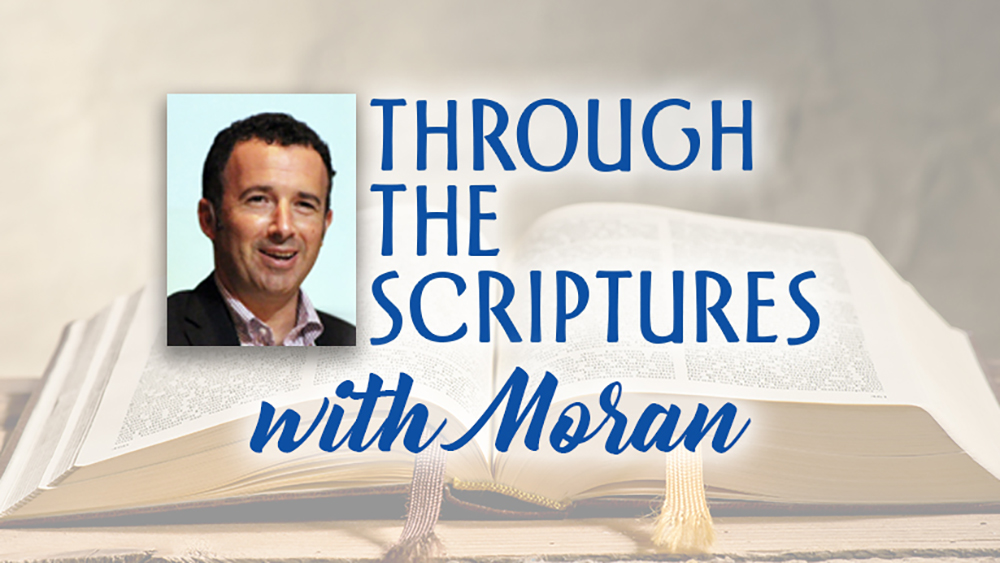
Parashat Tzav (Command)
Shemot (Exodus) 6:1–8:36 (English 6:8–8:36)
Haftarah: Malachi 3:4–24
This Shabbat is the Shabbat before Passover. It is called the “Shabbat HaGadol” (Great Sabbath) because while in Egypt, it was on Shabbat that God commanded His people to bring the Passover Lamb into their homes and keep it until the 14thday of Nissan, when they sacrificed it and placed its blood upon their doorposts (Exodus 12). No doubt, it is a very special time of reflection and gratitude for all God has done for us.
In our Parasha this week, we find more of God's instructions that He gave to the children of Israel through Moses. These instructions relate to the different kinds of sacrifices that they were to make. This week, we find the instructions pertaining to the Torah (Laws or teaching) of the “HaOlah” (Burnt offering, Leviticus 6), which literally means "to go up" and comes from the idea that the entire sacrifice would go up on the altar. The command was that twice a day—in the morning and in the early evening—the Priests were to offer sacrifices to the LORD. This was to be a continuous act, which suggests that there was continuous need for the forgiveness of sin. I believe that on a spiritual level, it was also something that would actually draw Israel closer to God, because they would be ever mindful of their need for God’s forgiveness.
We also find the Torah of Mincha (the grain or meal offering in Leviticus 6), Hasham (guilt offering in Leviticus7) and the Shlemim (peace offering).
As one reads the details of these instructions, it becomes clear that God requires a separation between that which is holy and unholy in His sight. We also see that He alone determines what is holy and what is profane, as well as the means of redemption for that which is unholy. We cannot fool God nor can we bribe Him to do things our way.
This brings me to our Haftarah from Malachi 3:
"For I, the LORD, do not change; therefore you, the sons of Jacob, have not come to an end. From the days of your fathers you have turned away from My statutes and have not kept them. Return to Me, and I will return to you,” says the Lord of armies. “But you say, ‘How shall we return?’ Would anyone rob God? Yet you are robbing Me! But you say, ‘How have we robbed You?’ In tithes and offerings."
Malachi 3:6–8
Just as in the days of old, so it is today; God desires our everything in accordance to His ways- not ours. The comfort that I find is that, for those who choose to fear Him and walk in accordance to His commands there is a great amount of hope as we read:
Then those who feared the LORD spoke to one another, and the LORD listened attentively and heard it, and a book of remembrance was written before Him for those who fear the LORD and esteem His name. “And they will be Mine,” says the LORD of armies, “on the day that I prepare My own possession, and I will have compassion for them just as a man has compassion for his own son who serves him.” So you will again distinguish between the righteous and the wicked, between one who serves God and one who does not serve Him.”
Malachi 3:16–18
God has written a book of remembrance, and only He decides whose name will be written in it. God will separate between the righteous and the wicked, between those who choose to serve Him or who choose to serve themselves.
Where would you like to be? If you choose God, then just like the children of Israel, you need to choose the blood of the Lamb to “mark” your doorpost. But also, you need to remember that this is just the beginning of the journey and not the end.
As we learn from our Parasha, in the past, God required many different sacrifices as a form of atonement, all of which pointed to the ultimate everlasting sacrifice in the image of His Son. However, once you accept that atonement, I believe that His desire for daily sacrifices is still valid, not with flesh and blood, but rather our daily denial of selfish desires and being living sacrifices, holy and pleasing to Him (Romans 12:1).
As we enter the wonderful season of Passover, let us take time to reflect and do some "spring cleaning" in our hearts to get rid of any unholy thing that is separating us from God. A day is coming when each of us will give an account of Himself to God:
“For behold, the day is coming, burning like a furnace; and all the arrogant and every evildoer will be chaff; and the day that is coming will set them ablaze,” says the Lord of armies, “so that it will leave them neither root nor branches. But for you who fear My name, the sun of righteousness will rise with healing in its wings; and you will go forth and frolic like calves from the stall. And you will crush the wicked underfoot, for they will be ashes under the soles of your feet on the day that I am preparing,” says the LORD of armies. “Remember the Law of Moses My servant, the statutes and ordinances which I commanded him in Horeb for all Israel. Behold, I am going to send you Elijah the prophet before the coming of the great and terrible day of the LORD. He will turn the hearts of the fathers back to their children and the hearts of the children to their fathers, so that I will not come and strike the land with complete destruction.”
Malachi 3:19–24 (4:1–5 in the English Bible)
Shabbat Shalom and Hag Pesach Sameach,
Moran
Check out previous blogs on this parashah!
Share this Post
